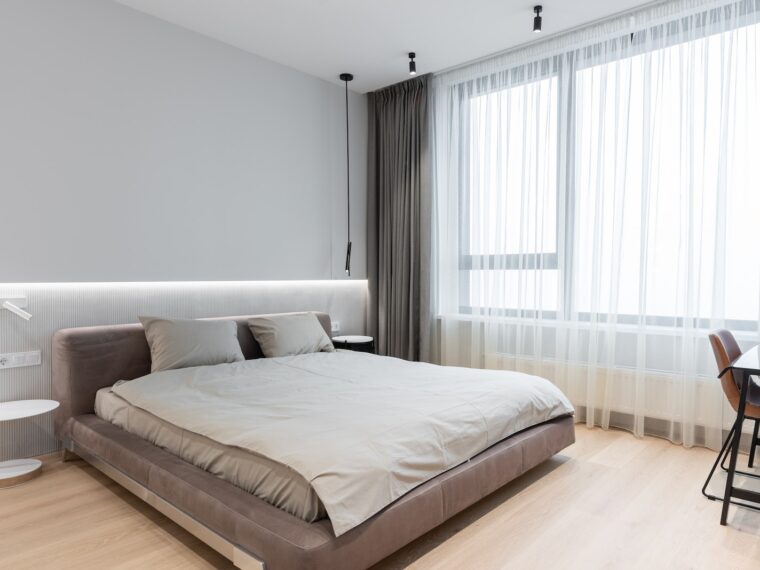People often recognize it is time to purchase a new mattress when they wake up with joint stiffness or back pain, sweaty sheets or trouble sleeping. Other indicators may be difficulty sleeping due to hot flashes.
Visible signs of damage on your mattress is an unmistakable indication that it’s time for replacement, while allergies could also make sleeping hard at night difficult.
1. Body Aches
Sleep should help to relieve the aches and pains of everyday life, yet many of us still wake up feeling sore backs or stiff joints from sleeping on an outdated mattress for more than 10 years. With time comes wear-and-tear damage that reduces its ability to support our bodies properly; often leading to pressure points in neck, shoulders, lower backs and hips which cause pain in these areas.
A new mattress may provide the support necessary to ease these aches and pains and restore you back to feeling refreshed. If your back pain worsens during the day or your neck and shoulder muscles feel sore after sleeping that movement becomes difficult, it might be time for an upgrade – it might just save your life!
Another sure sign it’s time for a new mattress is when its edges start to wear down, due to compression of materials inside your mattress over time, creating unsupportive areas in the middle of your bed and creating lumpy patches which make sleeping hard or difficult, leading to an uncomfortable lumpy look and making getting out and in easily more challenging than expected.
Lumpy mattresses may also be indicative of an old mattress that’s been neglected, which could allow dust mites to worsen your allergies. A new mattress could offer more breathable materials and advanced cooling technologies that help you remain cool during sleep.
Box spring and bed frame conditions also have a tremendous effect on the life and feel of a mattress, even new ones can often feel inadequate without sufficient support from these components. If yours are breaking down or failing to provide adequate assistance, even an otherwise perfect mattress could feel less than ideal and lessen its performance over time.
2. Tossing & Turning
Your mattress should be an oasis of peace and relaxation; but for some people it can become an epic struggle for restful sleep. If you find yourself tossing and turning all night and awakening with back pain, chances are your mattress is not providing adequate support. This may also be true if you find yourself waking up with sore neck, shoulders, or hips – as these areas likely don’t receive sufficient cushioning or support from it.
An obvious sign that it may be time for your mattress to retire is when it begins making loud creaks and groanes every time you move around in bed. This happens as innersprings begin to wear down and lose resiliency over time, leading to body impressions that don’t provide optimal spinal support.
Squeaky mattresses may also be caused by mold, dust mites, or other debris accumulating within. This buildup can lead to breathing difficulties, coughing fits and watery eyes – leading to other health concerns as well. If it hasn’t been thoroughly cleaned or sanitized for some time, now could be the time for an upgrade!
There’s no universal rule regarding how long a mattress should last; this depends on a number of factors including materials used, initial construction quality, amount of use by each sleeper, weight distribution between users, sleeping position preferences and circumstances in life such as injuries sustained or having children.
Make the most out of your mattress investment by treating it well and rotating it regularly, using a mattress protector, and washing as needed. Also make sure your bed frame matches up perfectly so you can maximize its potential usage; and when it is time for replacement, recycle in an eco-friendly manner while investing in one that provides quality sleep for years.
3. Exhaustion
Over time, mattresses can accumulate dust mites and allergens that cause allergic-type symptoms like watery eyes or runny noses. If this is happening to you, replacing it may be in order. Furthermore, older mattresses can trap heat and overheat during the night leading to sweaty sheets – while newer ones with cooling features like infused foams or covers made with breathable fibers can keep you cool while sleeping comfortably.
Signs that your current mattress is no longer providing adequate support include sore back or tender joints in the morning despite physical activity levels; these symptoms often persist, and could indicate your mattress being at fault.
Mattresses may become compromised over time for various reasons beyond their control, including injuries, pregnancies, weight changes or adding pets into the mix. When one that once fit perfectly no longer does so it may be time for replacement shopping to take place.
As mattress padding wears down over time, it can leave lumps or dents on its surface and uneven density that creates pressure points, often in areas like neck, shoulders, hips or lower back. If you find yourself awakening with sore back or tender joints each morning it could be an indicator that your mattress no longer supports the natural curve of your spine.
Over time, mattresses may develop an unpleasant odor due to mildew, mold and fungus growth. If you wake up to an overwhelming musty odor on your mattress each morning, this could be a telltale sign it’s time for an upgrade.
4. Poor Sleep
Sleep is essential to both physical and mental wellness. If you find that you frequently wake up tired, with stuffy nose, it could be that your mattress is not providing restful slumber.
If your mattress is over 10 years old and you are experiencing trouble sleeping, it may be time for an upgrade. While mattresses do tend to wear down over time, if you find yourself frequently awakening sore or with a stuffy nose then switching up beds might be worth trying out.
As mattresses get older they tend to lose support, leading to sagging. Over time the springs wear out or comfort layers become less supportive resulting in a sinking center which puts pressure on joints and back; leaving you sore in the morning with stuffy noses.
Your spine naturally curves into an “S” shape when lying down, but as your mattress wears down it loses support and creates an uneven surface which causes pain and discomfort throughout the night. Maintaining clean conditions for your mattress as well as using a mattress protector may extend its life; once worn-out though, replacing it is necessary so that your sleep quality improves and you receive proper support needed to rest soundly.
Replacing your mattress might seem like a lavish indulgence, but we spend around one third of our lives sleeping! By investing in yourself and getting restful restful sleep you deserve it’s worth investing in yourself as part of overall health improvement plan! To help with choosing your ideal mattress check out our comprehensive guide of how to find it! We hope that soon you will be enjoying a new bed!




